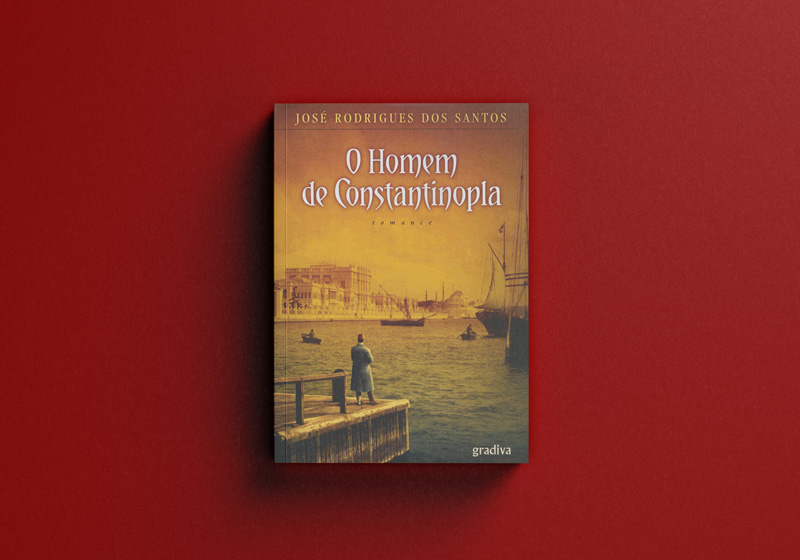Interview The Man from Constantinople for Diário de Notícias
- DN – To choose the Armenian oil magnate Calouste Gulbenkian as the subject of a novel is a sure way to generate controversy?
JRS – I didn’t choose a novel based on the life of Gulbenkian to generate controversy, but as part of a series of novels about those moments when Portugal crucially interacted with the world. This series began with The Island of Darkness, about the Indonesian invasion of East Timor and Portugal’s efforts to liberate the country, it went on with The Captain’s Daughter and the role of Portugal in the Great War, then the Age of Discoveries in Codex 632 and the Portuguese colonial war in Africa in The White Angel. The story of the man who architected the international business of oil and his life in Portugal conclude this series. Let us say that I wrote the novels I would have liked to read but couldn’t find in bookstores.
DN – Did you find facts about Gulbenkian’s life that surprised you?
JRS – I was mainly surprised with two things. The first one, which actually shouldn’t surprise me at all, was the corruption involved in huge business deals. The rise of Gulbenkian in the oil business takes place in a process full of bribes, lobbying and backstage scheming that involved all parties. It’s shocking. And yet, this is reality – especially in the Ottoman days, though things like this persist today. The second surprise took place when I learned that Gulbenkian always kept an under 18 years old girl at his service for “sex therapy”. This was, however, considered quite normal in the Ottoman days, and I took great pains to portray this practice within the context of its times.
DN – Did you follow your original idea for the novel or were you forced to change its direction due to your research?
JRS – Although based on real events, this novel is, by definition, a piece of fiction. That’s why the main character is not called Calouste Sarkis Gulbenkian, but Kaloust Sarkisian. Sarkisian is based on Gulbenkian, but he’s not Gulbenkian. At the end of the day, he’s a fictional character. Anyway, since the novel is based on true events, the role of imagination is not to create the story, but to imagine events that really took place. The storyline thus follows Gulbenkian’s story. Therefore, there are no changes of direction but for those imposed by my research on Gulbenkian’s life.
DN – Is this a fictionalized biography or a novel with biographical undertones?
JRS – This is a fictionalized biography that sometimes becomes a novel with biographical undertones. For example, there are no documents about Calouste’s introduction to sex, which is quite normal. Who keeps such records? So I had to imagine Kaloust’s first experience with sex. Of course Calouste had a sexual first experience, but how was it exactly? We’ll never know. This is where the novelist writes pure fiction. But the remainder of the book is based on real information about Gulbenkian.
DN – So, the chapters that deal with Gulbenkian’s intimate family life are based on real events?
JRS – Sure. Surprising details are known, such as the fact that Calouste always kept a girl under 18 in his hotel suite and his strange relationship with his wife and oldest son, Nubar. Many traits of his personality and character are also known, as are his daily routines.
DN – Do you think that Gulbenkian’s decision to leave his enormous wealth in Portugal was sufficiently appreciated by the Portuguese?
JRS – I don’t know. The Gulbenkian Foundation is one of the biggest in the world and a central institution for Portuguese cultural life. He believed his legacy would make him eternal in this country. And it did.
DN – Don’t you think your option to split the story in two parts, The Man from Constantinople and its sequel, A Millionaire in Lisbon, is commercially too risky?
JRS – They are two books, both related but each with its own character. That’s what counts. Nothing else matters.
DN – Many of your novels are translated. Do you think this one will sell in the international market?
JRS – My mystery novels with Tomás Noronha do very well on the international market. But not my historical novels. They deal mainly with Portuguese life and history, and of course they do not easily impress international publishers. Having said that, it’s obvious that both The Man from Constantinople and A Millionaire in Lisbon have the potential to draw the attention of publishers from the Caucasus and Balkan regions, especially Armenia and Turkey.



